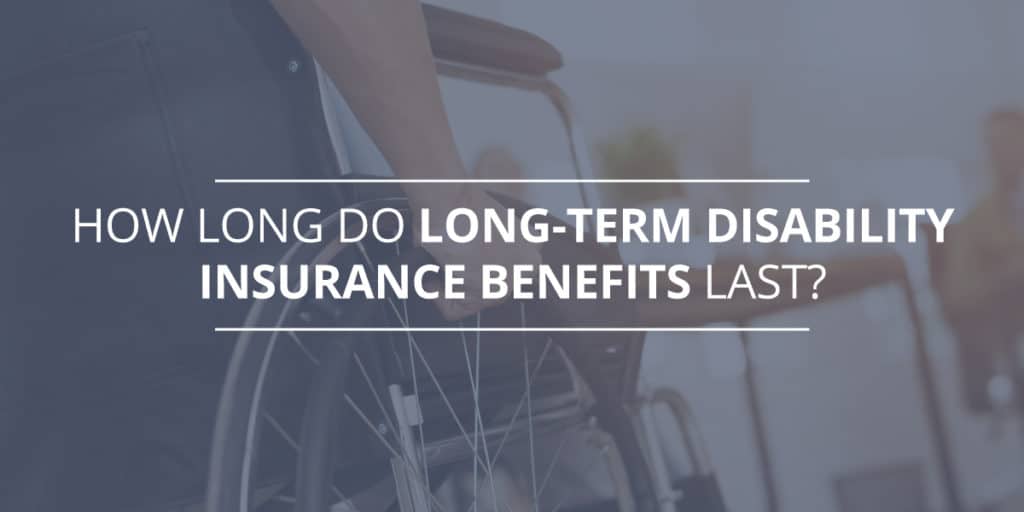
While many of us would like to believe that we are infallible, the reality is that we are all human. No matter how healthy you may be, there is no guarantee that you will remain that way. In fact, approximately 25% of 20 year olds can expect to be out of work for at least a year with a disabling condition before they reach retirement age.
Disability insurance is a way to hedge your bets, and protect against the possibility that you will be unable to work due to an illness or injury. There are many benefits to disability insurance, particularly long-term disability (LTD) insurance, which provides coverage for an extended period of time. LTD benefits offer financial security when you are experiencing a personal hardship, offering benefits in the form of a percentage of your salary.
Unfortunately, not all LTD policies are created equal. The terms and conditions of LTD policies can vary significantly, which may result in less coverage than you anticipate if you don’t read the fine print. This is particularly important when it comes to how long benefits last — which may not be the same for all conditions.
What Is Long-Term Disability Insurance?
LTD insurance is a specific type of insurance that provides payments (typically 50 to 60% of your salary) if a policyholder is unable to work due to a covered disability. This type of coverage can be purchased by individuals (private plans) or may be offered by employers (group plans).
All LTD policies have what is known as a waiting or elimination period. This is the length of time that you have to wait after becoming disabled before you can start receiving benefits. A typical elimination period is 6 months.
If you are unable to work because of an illness of injury, you will need to apply for LTD benefits. The insurance company will then evaluate (1) whether your disability qualifies as a covered disability; and (2) whether you are unable to work due to your disability. If your application is approved, you will start receiving benefits once the elimination period has been met.
Benefit Periods for Long-Term Disability Insurance
The length of time that you will receive benefits will depend on your policy. The benefits period is the period of time that LTD benefits will be paid out under the policy. Your benefits period may be for 2 years, 5 years, 10 years, or even until retirement age.
However, there are some conditions that may result in a limited amount of benefits — regardless of the length of your benefit period. This typically occurs for mental health and substance abuse disorders, which may limit benefits to a period of as little as 6 to 24 months. These limitation riders can work to significantly reduce your total coverage, even if you are still disabled after the benefit period has expired.
According to the Council for Disability Awareness, the average long-term disability lasts 31.2 months, or just under 3 years. A policy for less than that amount of time — or with a limitation rider — may result in significant financial distress if your disability lasts beyond the benefit period.
Of course, it is difficult to predict how long you will be unable to work due to a disability. For that reason, many people choose a policy with an extended benefits period. This may help to ensure that they are covered for a lengthy period of time — potentially through retirement. Some people also choose to purchase their own policy, rather than relying on a policy offered by an employer, which typically has more restrictions and limited benefits.
Even if you have a LTD policy with a generous benefit period, the insurance company may still attempt to cut your benefits short using a variety of tactics. Your insurer may request that you fill out voluminous forms, submit records, or that your doctor update them on your condition. They could also employ surveillance in an attempt to show you are more functional than you claim. They may then use this information — or a failure to provide it — to justify ending your LTD benefits.
In this situation, an experienced Philadelphia long-term disability benefits attorney can advocate for you, appealing either a denial of benefits or a cessation of benefits. Through a careful review of your policy, claim and other documents, your lawyer can work to ensure that you are getting the benefits that you deserve.
How a Philadelphia Long-Term Disability Benefits Attorney Can Help
Insurance policies are designed to be complicated and hard to read. Filling these documents with fine print and legal jargon gives the insurance companies an advantage over policyholders. A lawyer who specializes in long-term disability insurance benefits can level the playing field.
The law firm of Bross & Frankel believes that everyone deserves a fighting chance — and outstanding representation. We have advocated tirelessly for our clients since 1985, fighting against insurance companies and others to help people with disabilities get the best possible outcome for their claims. If you are considering filing for long-term disability benefits, call us today at 856-795-8880, or contact us online to schedule a free claim review with a Philadelphia long-term disability benefits attorney.

Rich Frankel is the managing partner of Bross & Frankel. He is a member of the New Jersey and Pennsylvania bars. He has focused exclusively on disability and social security benefits since 2005.
Mr. Frankel joined what is now Bross & Frankel after having watched his father struggle with disability, fighting a lengthy illness. Mr. Frankel founded the firm’s veteran’s law practice and substantially grew the social security disability practice, focusing Bross & Frankel’s ability to fight for all of the disability benefits available to his clients.
Mr. Frankel additionally fights for clients in court, obtaining frequent victories in Social Security appeals and against insurance companies in Federal court.